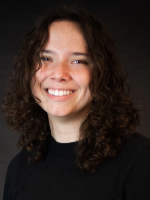As the war between Russia and Ukraine continues, more and more Ukrainians need complex reconstructive surgery after facing life-altering injuries. OU Health is teaching a group of Ukrainian surgeons how to perform those procedures.
The program is called Operation Ukraine. OU Health has hosted cohorts of Ukrainian surgeons to complete training alongside their own surgeons. It’s the only program like it in the U.S.
OU Health just welcomed its third cohort of four head and neck surgeons, and they’re receiving training to help them handle severe war-related injuries.
Mark Mims, a facial plastic and reconstructive surgeon from OU Health, said 80% to 90% of patients these surgeons are seeing have incurred blast-related injuries from things like rockets, mines and missile hits, with the remainder being bullet wounds. The most common need in these settings is to reconstruct or replace both the lower or upper jaw.
Mims said one of the surgeons in the cohort told him that 250 patients require a reconstruction of their lower jaw at his practice. At OU Health, Mims said they take one or two of these cases on a busy week.
“The quality of life of these patients is dramatically altered,” Mims said. “These are patients that are unable to speak, unable to swallow, sometimes unable to breathe, and so allowing for these reconstructive techniques will give new life to these patients and in all these regards.”
Ukrainian surgeons in this cohort are taking a one-month intensive training course on complex reconstructions, and that includes spending time in OU Health’s cadaver lab. Mims said training in cadaver labs isn’t allowed in Ukraine, meaning surgeons in the cohort are accessing hands-on training they couldn’t at home.
“The first aim [is] to treat the patient, and the second aim [is] to spread our knowledge, which we already received in [the] United States, between our surgeons, who will be interested in reconstructive surgery,” said Mykola Sinyuk, a surgeon from Lviv Military Hospital.
The cohort is also the first to work with the advanced technology OU Health is giving them. This includes Ohana One Smart Glasses, which will allow them to call surgeons from OU who can provide real-time consultations during their operations at home.
“Once we have a base cohort there that knows how to do these techniques, then they will be able to train other surgeons, and hopefully we can fade into the background and let Ukrainians take care of Ukrainians,” Mims said.
Mims said participating in Operation Ukraine has been one of the biggest honors of his career.
“I've been just very impressed by the people that have come over here. I feel extremely gifted and blessed to be able to offer this service to people who truly need it and who are so grateful and thankful for the opportunities that they have to come over here,” Mims said. “And, for whatever small part that we can play here to help, we've just been very proud to support them.”
StateImpact Oklahoma is a partnership of Oklahoma’s public radio stations which relies on contributions from readers and listeners to fulfill its mission of public service to Oklahoma and beyond. Donate online.








